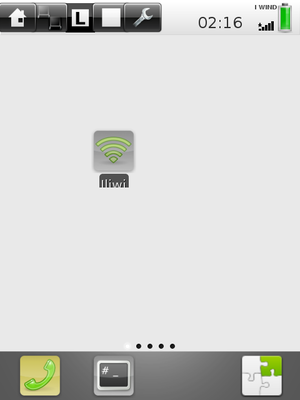 | |
 SHR Core | |
| Developer | SHR community |
|---|---|
| OS family | Linux (Unix-like) |
| Working state | Obsolete |
| Source model | Open source |
| Available in | Multilingual |
| Update method | opkg |
| Package manager | opkg |
| Platforms | ARM |
| Kernel type | Monolithic (Linux) |
| Userland | GNU |
| Default user interface | Enlightenment's Illume 2 |
| License | Mainly the GNU GPL / plus various other licenses |
| Official website | shr-project.org at the Wayback Machine (archived 2012-07-23) |
SHR (formerly Stable Hybrid Release) was [1] a community-driven Linux distribution for smartphones which was based on OpenEmbedded, Xorg, and the freesmartphone.org (FSO) framework. Several different graphical toolkits were made available, such as GTK+ and Qt. [2] [3]